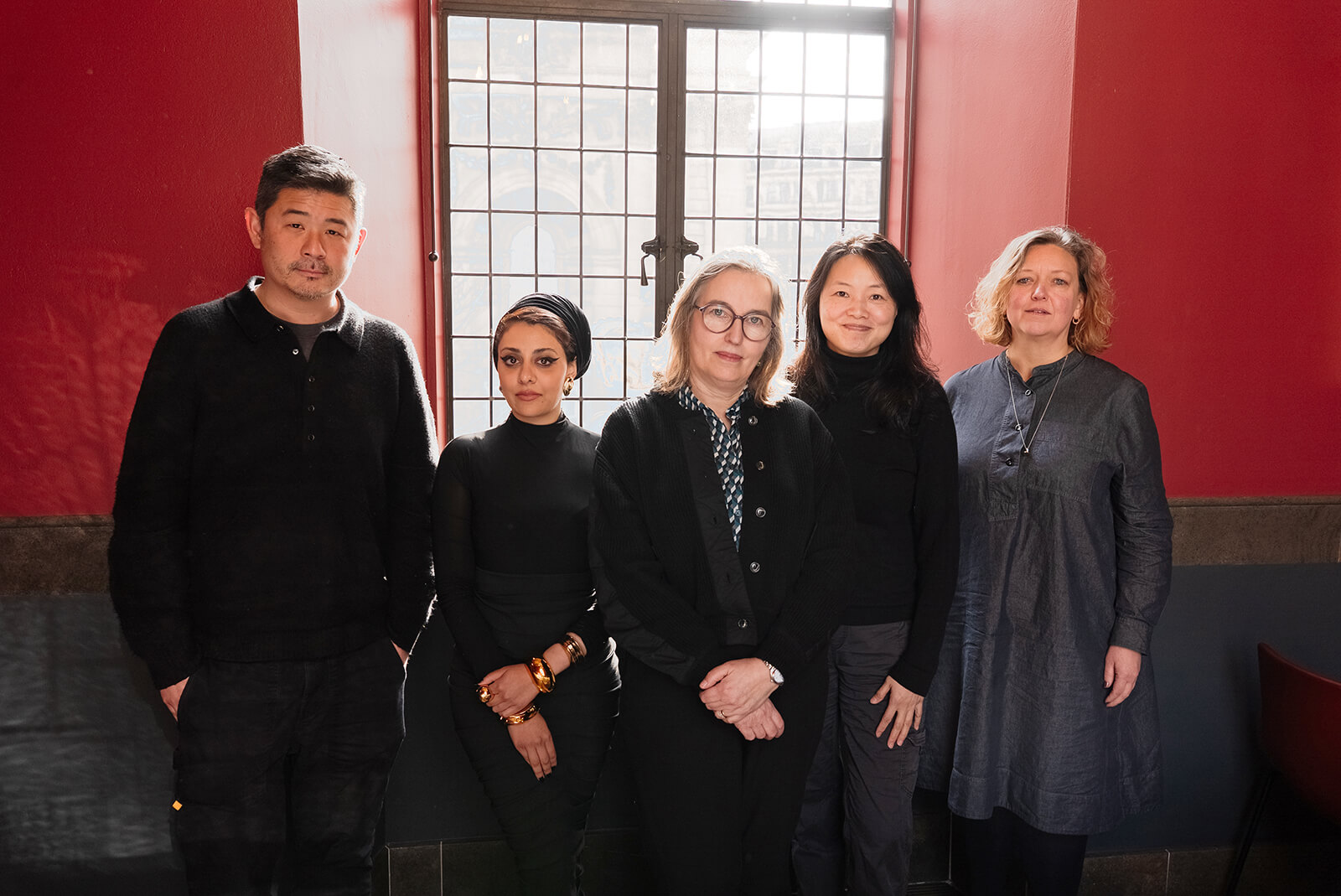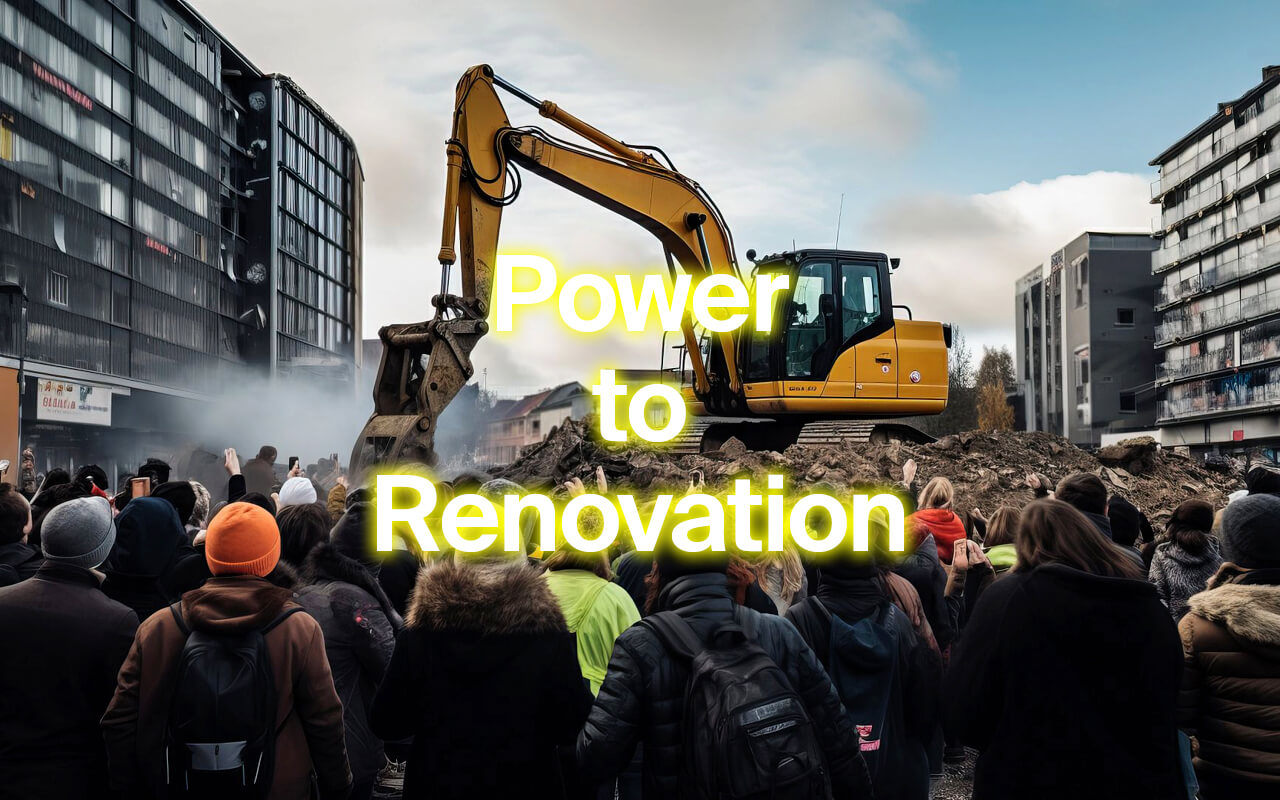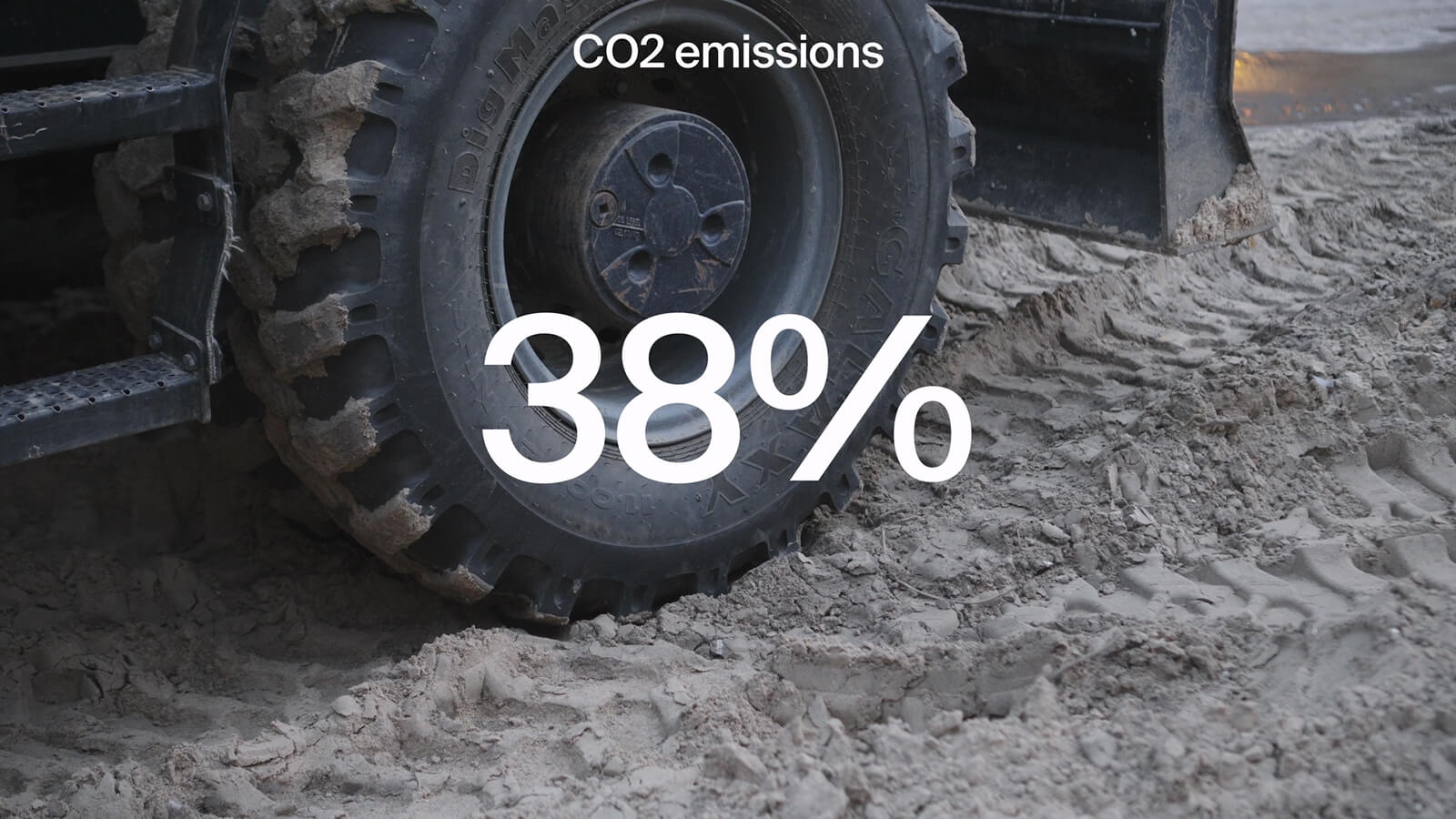Exploring Washington through 'Capital Brutalism' at the National Building Museum
by Dhwani ShanghviNov 11, 2024
•make your fridays matter with a well-read weekend
by Mrinmayee BhootPublished on : Jun 17, 2025
“We are f**cked, but you can change it!” reads a sign in the Arsenale in Venice where the curator’s showcase for the 19th International Architecture Exhibition is currently hosted. Marking HouseEurope!'s display at the Venice Architecture Biennale 2025—provocative in its urgency—the sign is a call to action to you, the viewer, to rethink conventional methods of construction that prioritise new development. This critical petition by the European not-for-profit organisation foregrounds their instigation as an inclusive, citizen-led initiative that uses architecture as a tool for social and political good. Their advocacy for renovation as the only logical development strategy moving forward was recently lauded by OBEL, winning them this year’s OBEL Award.
HouseEurope! is the seventh recipient of the OBEL Award and it will be felicitated in an official ceremony in Brussels on October 21, 2025. Established in 2018, the OBEL Award has over the years commended practices that address various facets of sustainability and conscious design. Previous winners include Mexico-based Colectivo 733’s community-oriented approach to practice (2024); landscape architect Kate Orff’s proposal that considers human and non-human entities, Living Breakwaters (2023); material science lab Seratech’s carbon-neutral concrete (2022); Professor Carlos Menos' urban design proposal 15-minute city (2021); German architect Anna Heringer’s multi-layered building Anandaloy (2020); and Japanese architect Junya Ishigami’s Water Garden (2019).

The recognition of the citizen-led initiative is vital. It comes at a time when Europe is facing a mass housing crisis, rising CO2 emissions and the rapid and steady depletion of resources. By 2050, Europe is expected to demolish over 1.5 billion sq.m. of existing space, which could potentially house 50 million people. To note, it is in fact the building sector that is not only Europe’s largest CO2 emitter, accounting for 38 per cent of emissions, but the construction industry is also one of its largest producers of waste (36 per cent). These figures, indicative of the vastly wasteful impact of the built environment, highlight a moment of crisis for the construction sector.
Our challenge now is to break out of the bubble—to grow awareness beyond the discipline and turn it into legislation. Reuse must become more than an ethical position; it must become a political mandate. – HouseEurope!

HouseEurope!, described by the OBEL Award as ‘a pioneering policy lab and citizen-led initiative advocating for the social and ecological transformation of Europe’s built environment’, was initiated by Berlin-based firm b+, with the research platform, station.plus at ETH Zurich. Their one battlecry: Yes to Renovation! No to Demolition! To this end, the organisation works tirelessly to create awareness about the benefits of adaptive reuse and circular design as an alternative to existing legislation that continues to favour new construction. Awareness campaigns by the initiative have included exhibitions, films and poster campaigns. Posters, flyers and construction tape designed by the group—deployed around sites of demolition—all declare, with a warranted urgency: Fix It! A recent documentary, Build a Law, conceived in conjunction with the Canadian Centre for Architecture, delves into the formation of the lab, and the path towards fostering practices of circularity.
Speaking to STIR about the shift in mindset from one centred on new to re-new culture, HouseEurope! noted, “When we launched HouseEurope!, we were speaking into a growing but still relatively niche conversation. Today, calls for reuse and care have gained broad momentum—not only among students and young practitioners, but also within cultural institutions, city governments and parts of the European legislative sphere. Architecture schools are revising their curricula, practices are pioneering new models of care-based renovation, and an increasing number of policymakers are listening.” However, support still remains uneven, they mention.

To acknowledge the need for reuse, the OBEL jury’s theme for the 2025 award cycle, Ready Made, asked nominees how we may rethink, reinterpret and repurpose existing resources through practice. It hoped to spotlight alternative design approaches through which we can prioritise what already exists, and challenge supply chains and policy frameworks that currently shape the world. “With Ready Made as this year’s focus, we not only look at materials and existing building stock but also at established systems—legal, political and economic—that shape our built environment,” a representative of the 2025 OBEL Award jury told STIR.
The win for HouseEurope! also underscores a crucial barrier to the implementation of ‘ready mades’ and reuse practices: policy. Further, by awarding an organisation based on citizen-led proposals and a broader critical perspective on the industry that calls for systemic change, the jury highlights how no single project or practice can provide the definitive answer for a more inclusive, sustainable future. “Recognising and awarding HouseEurope! sends a strong message to the profession and the next generation of architects: you have a voice and the power to reshape the systems that constrain our field. It also affirms that systemic change is possible when architecture engages not only with form and construction, but with legislation and civic participation,” relayed the jury representative. Emphasising the urgency of HouseEurope!’s call to action and its relevance to the architectural discipline beyond the Global North, they continue, “Though rooted in a European context, its relevance and impact reach far beyond. We hope it inspires similar citizen-led legal and policy initiatives elsewhere and opens new pathways for architectural practice that prioritise transformation over demolition, community over capital and planetary wellbeing over destruction.”
While many universities, especially young practitioners, feel the need to address the issues of the climate crisis, treating architecture as much as a political project as simply a formal one, larger institutions and political bodies are slower to move. “They are starting to shift. Several members of the European Parliament have expressed support for our campaign, and we’ve begun conversations with municipal departments about embedding renovation-first principles into local frameworks,” HouseEurope! said in a hopeful tone. “Our challenge now is to break out of the bubble—to grow awareness beyond the discipline and turn it into legislation. Reuse must become more than an ethical position; it must become a political mandate—and a real, accessible alternative for the many.”
Every minute, somewhere in Europe, a house is destroyed—not by natural catastrophe, but by human hands. And we all pay the price: in rising temperatures, rising rents, and vanishing communities. A collaborative approach—one that centres repair, reuse, and care—offers a more democratic path forward. – HouseEurope!
As HouseEurope! hopes to make clear in their recruitment campaigns, reuse ensures rents and housing costs do not increase exponentially. Further, practices of repair shift the conversation from material to labour, ensuring local employment and benefiting small and local businesses. By avoiding demolition and prioritising preservation, architecture can also preserve cultural significance of a particular neighbourhood through its built spaces. HouseEurope!'s appeal focuses on three major tenets to engender a shift in regulations. These include demands for tax incentives for renovation projects and those that employ reused materials (applicable to all buildings, not just housing); reassessing evaluation standards for the potential of existing buildings to be reused, and metrics that account for grey energy and embedded CO2 content of built infrastructure, currently not under consideration. These shifts would make sure that the transformation of existing built infrastructure is easier, affordable and socially just: the ultimate aim.
One of the core strategies HouseEurope! has workshopped to combat prevalent polluting practices of the construction industry—driven by profit, capitalist gain and a cornucopian notion of progress—is the European Citizens’ Initiative (ECI). The programme is a tool of participatory democracy where citizens are empowered to voice their concerns in decisions that affect their environments, and in shaping new European Union legislation. Some notable spokespersons for the campaign include Oana Bogdan, Reinier de Graaf, Anne Lacaton, Charlotte Malterre-Barthes, Jean-Philippe Vassal, FormaFantasma, Jacques Herzog and Pierre de Meuron. Currently, through ECI, HouseEurope! is advocating to get one million signatures across all EU member states until January 31, 2026, to bring the topic of reuse to the forefront of political discourse.
“Every minute, a building in Europe is destroyed—not by natural disasters, but by financial speculation,” Olaf Grawert and Alina Kolar, co-initiators and campaign managers of HouseEurope!, said in the official release. With such a dire scenario to face, for them, the future lies in collective stewardship, not isolated authorship; they noted in conversation, elaborating, “The future we advocate for is one in which buildings are treated as cultural and environmental assets to be cared for, not as disposable commodities.” While architects can provide technical knowledge, for the activist group, true preservation requires a partnership.
Only 25 per cent of existing structures in Europe are currently considered for refurbishment, meaning it would take 75 years to reach climate goals as agreed upon by the European Green Deal. However, the organisation wants to triple the rate of renovation to transform the industry into one that is more carbon-efficient, and mindful of the footprint it creates. What's perhaps worth remarking on is the provocative nature of their calls to action: simmering with a restless determination. Why should the need to renovate be seen as provocative? A critical question to ask, and one that HouseEurope! continues to tackle. The roadmap is clear: Preservation—Reuse, don’t demolish! Adaptation—Adapt, don’t abandon. Renovation—Build for the future. Transformation—Shift the value!
by Bansari Paghdar Oct 16, 2025
For its sophomore year, the awards announced winners across 28 categories that forward a contextually and culturally diverse architectural ecosystem.
by Mrinmayee Bhoot Oct 14, 2025
The inaugural edition of the festival in Denmark, curated by Josephine Michau, CEO, CAFx, seeks to explore how the discipline can move away from incessantly extractivist practices.
by Mrinmayee Bhoot Oct 10, 2025
Earmarking the Biennale's culmination, STIR speaks to the team behind this year’s British Pavilion, notably a collaboration with Kenya, seeking to probe contentious colonial legacies.
by Sunena V Maju Oct 09, 2025
Under the artistic direction of Florencia Rodriguez, the sixth edition of the biennial reexamines the role of architecture in turbulent times, as both medium and metaphor.
 surprise me!
surprise me!
make your fridays matter
SUBSCRIBEEnter your details to sign in
Don’t have an account?
Sign upOr you can sign in with
a single account for all
STIR platforms
All your bookmarks will be available across all your devices.
Stay STIRred
Already have an account?
Sign inOr you can sign up with
Tap on things that interests you.
Select the Conversation Category you would like to watch
Please enter your details and click submit.
Enter the 6-digit code sent at
Verification link sent to check your inbox or spam folder to complete sign up process



by Mrinmayee Bhoot | Published on : Jun 17, 2025
What do you think?